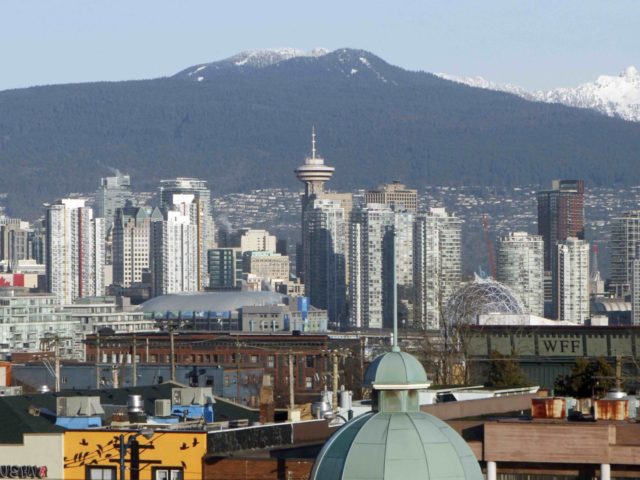Silicon Valley start-ups appear to be moving employees to Vancouver’s Silicon Valley North more rapidly in response to increasing U.S. enforcement of immigration and labor laws.
Up to 75 percent of Silicon Valley tech workers are foreign-born, because many tech companies hire foreign labor contractors to provide workers with science, technology, engineering and mathematics (STEM) skills at favorable wage rates through the H-1B temporary visa program. But there is increasing concern in Silicon Valley that such programs may be reduced in the future.
White House press secretary Sean Spicer confirmed on January 31 that a federal effort to overhaul of the H-1B visa is on the horizon. According to Bloomberg, the proposal states:
Our country’s immigration policies should be designed and implemented to serve, first and foremost, the U.S. national interest. Visa programs for foreign workers … should be administered in a manner that protects the civil rights of American workers and current lawful residents, and that prioritizes the protection of American workers — our forgotten working people — and the jobs they hold.
The TechCrunch blog reported that a number of Silicon Valley tech entrepreneurs have formed a company called True North as a vehicle “to make it easier for U.S. companies to create subsidiaries in Canada and to move their U.S.-based employees to a new, Vancouver-based office.”
The group is offering $6,000 packages that include airfare for one person to fly to Vancouver, two nights of accommodations, and a day with “world-class immigration professionals who will walk you through the process and answer any questions you have.”
True North cofounder Scott Rafer told TechCrunch that they “aren’t saying to move on spec, but to have a ripcord.”
Vancouver already hosts satellite offices for tech giants like Facebook, Microsoft, Amazon, and Twitter. But those companies also have sprouted Vancouver-based unicorns that include social media management platform HootSuite, real-time messaging software company Slack, and security solutions firm Avigilon. According to the Vancouver Economic Commission, the tech industry generates $23 billion in revenue and has attracted 30 per cent of all the venture capital funds invested in Canada. The tech community utilizes almost 40 per cent of Vancouver’s downtown commercial real estate, and “Startup Compass” named Vancouver to its top 20 list of Best Startup Ecosystems in the World.
The Canadian government launched a “Start-up Visa Program” in 2013 to hopefully poach some of foreign entrepreneurs on temporary visas in Silicon Valley and the Seattle area. There have been Canada immigration programs for decades that offer residence visas to individuals willing to invest $1 million in the nation. But the start-up visa only requires a foreign entrepreneur to first secure a minimum investment of $200,000 from a designated venture capital fund, or a minimum investment of $75,000 from a designated angel investor group. For venture capital-backed incubator start-ups, there are no set amounts of investment required, and foreigners gain residence permits as soon as they are approved.
Relative to its population, Canada already takes in more than twice as many legal immigrants as the United States, but the New York Times called this open door policy “an experiment in designer immigration.” Jeremy Robbins, special counsel to former New York Mayor Michael Bloomberg commented, “While we sit on our hands, our competitors around the globe are rolling out the red carpet to recruit the most talented individuals away from us.”
Although Canada’s Start-up program got off to a slow start over its first three years, interest has skyrocketed since the U.S. elections caused Silicon Valley tech companies to start worrying about stringent enforcement of H-1B visa rules.

COMMENTS
Please let us know if you're having issues with commenting.